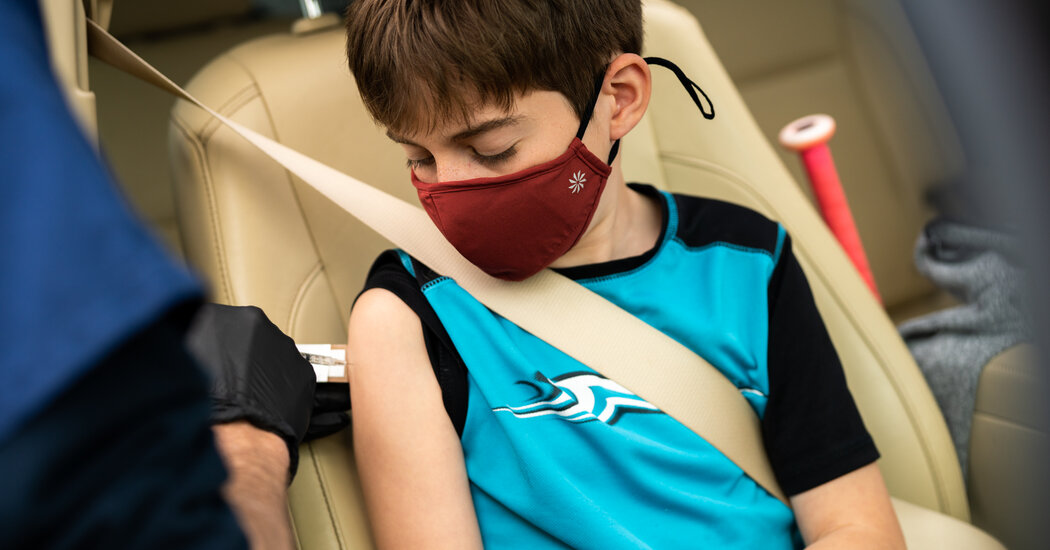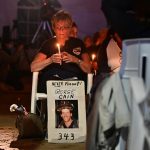
Initially reluctant to enact mandates, President Biden is now moving more aggressively than any other president in modern history to require vaccination, including in schools.
Understand Vaccine and Mask Mandates in the U.S.
-
- Vaccine rules. On Aug. 23, the Food and Drug Administration granted full approval to Pfizer-BioNTech’s coronavirus vaccine for people 16 and up, paving the way for an increase in mandates in both the public and private sectors. Private companies have been increasingly mandating vaccines for employees. Such mandates are legally allowed and have been upheld in court challenges.
- Mask rules. The Centers for Disease Control and Prevention in July recommended that all Americans, regardless of vaccination status, wear masks in indoor public places within areas experiencing outbreaks, a reversal of the guidance it offered in May. See where the C.D.C. guidance would apply, and where states have instituted their own mask policies. The battle over masks has become contentious in some states, with some local leaders defying state bans.
- College and universities. More than 400 colleges and universities are requiring students to be vaccinated against Covid-19. Almost all are in states that voted for President Biden.
- Schools. Both California and New York City have introduced vaccine mandates for education staff. A survey released in August found that many American parents of school-age children are opposed to mandated vaccines for students, but were more supportive of mask mandates for students, teachers and staff members who do not have their shots.
- Hospitals and medical centers. Many hospitals and major health systems are requiring employees to get a Covid-19 vaccine, citing rising caseloads fueled by the Delta variant and stubbornly low vaccination rates in their communities, even within their work force.
- New York City. Proof of vaccination is required of workers and customers for indoor dining, gyms, performances and other indoor situations, although enforcement does not begin until Sept. 13. Teachers and other education workers in the city’s vast school system will need to have at least one vaccine dose by Sept. 27, without the option of weekly testing. City hospital workers must also get a vaccine or be subjected to weekly testing. Similar rules are in place for New York State employees.
- At the federal level. The Pentagon announced that it would seek to make coronavirus vaccinations mandatory for the country’s 1.3 million active-duty troops “no later” than the middle of September. President Biden announced that all civilian federal employees would have to be vaccinated against the coronavirus or submit to regular testing, social distancing, mask requirements and restrictions on most travel.
The president traveled to Brookland Middle School in Washington on Friday with Jill Biden, the first lady, a college professor who returned to the classroom this week. In his remarks, Mr. Biden urged parents to get eligible children vaccinated, and promised a White House visit to the school once every student received a vaccine.
“The safest thing you can do for your child 12 and older is get them vaccinated,” the president told the crowd. “You’ve got them vaccinated for all kinds of other things — measles mumps rubella — for them to go to school, to be able to play sports, they’ve had to have these vaccinations. Get them vaccinated.”
A slate of new requirements announced this week would apply to those who teach in Head Start programs, Department of Defense Schools, and schools operated by the Bureau of Indian Education. Collectively, those schools serve more than 1 million children and employ nearly 300,000 staff, according to the plan released by administration officials.
“We cannot always know what the future holds, but we do know what we owe our children,” Dr. Biden said on Friday. “We owe them a promise to keep their schools open as safe as possible. We owe them a commitment to follow the science.”
The surge of new cases, driven by the more contagious Delta variant, ripping through unvaccinated communities has also impacted children, who are currently being hospitalized at the highest levels reported to date, with nearly 30,000 entering hospitals in August.
Children still remain markedly less likely to be hospitalized or die from Covid-19 than adults, especially older adults. But experts say that the growing number of hospitalized children, however small compared with adults, should not be an afterthought, and should instead encourage communities to work harder to protect their youngest residents.
Christopher F. Schuetze contributed reporting.







